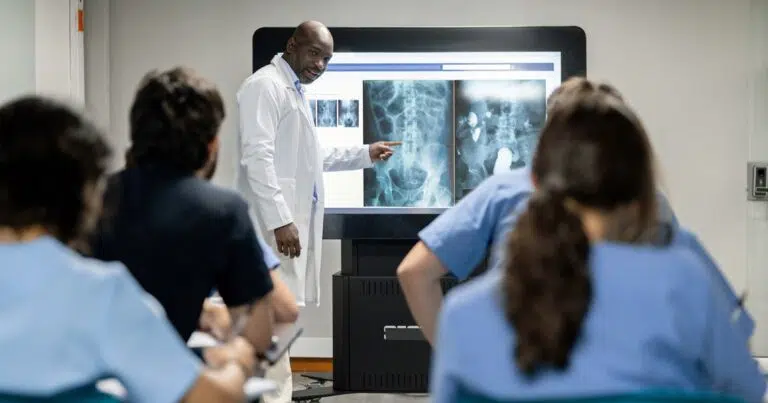Interventional Radiology Technologist Salary Guide: Iowa
Average Interventional Radiology Technologist Salary
Average Interventional Radiology Technologist Salary
$25.37/hour
The average salary for an Interventional Radiology Technologist in Iowa is $25.37 per hour. This is 69% lower than the US average of $42.95.
Estimate based on Bureau of Labor Statistics data.
Interventional Radiology Technologist salaries in Iowa compared to National Averages
Interventional Radiology Technologist salaries in Iowa compared to National Averages
$25.37/hour
Iowa
69% lower than the US average.
$42.95/hour
United States
How does the pay for Interventional Radiologist Technologists in Iowa compare to nearby states?
How does the pay for Interventional Radiologist Technologists in Iowa compare to nearby states?
| Average Hourly Salary | Max Hourly Salary | |
|---|---|---|
| Michigan | $28 | $37 |
Last updated on December 17, 2024. Information based on active jobs on Vivian.com and pay data from BLS and around the web.

Interventional Radiology Technologist Career Guide
Use our exclusive Career Guides to research the education, qualifications, skills and responsibilities for a variety of healthcare disciplines and specialties employers are hiring now.
Go to the guideGet alerts about new jobs and salary trends in Iowa
Be the first to know about new jobs for Interventional Radiologist Technologists with the salary that suits you.
Featured Blog Posts
Featured Blog Posts
Open article The Fastest Growing Allied Health Careers in 2025
The Fastest Growing Allied Health Careers in 2025 Get the facts you need to plan your healthcare career path in a top-paying, in-demand specialty.

Open article 3 In-Demand Medical Imaging Careers & What They Pay
3 In-Demand Medical Imaging Careers & What They Pay Rewarding work and pay? Explore key roles in radiography, sonography and MRI technology.

Open article Which Radiology Certifications Offer the Best Job Opportunities?
Which Radiology Certifications Offer the Best Job Opportunities? Boost your job prospects and potentially get a higher salary with the right credentials.
